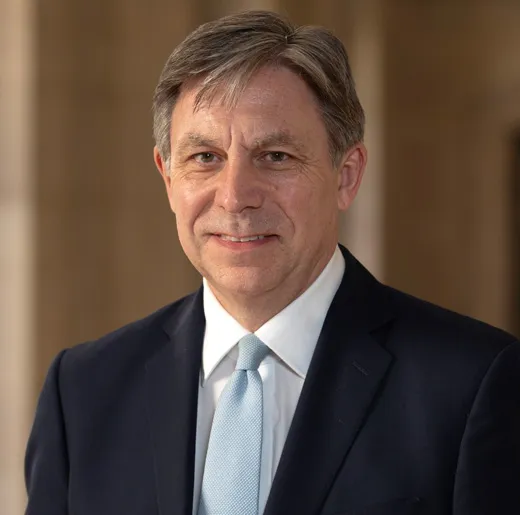
Bank of England policymaker Alan Taylor said he voted for a larger half-point base rate cut last week because the UK faces a “perilous” threat from US President Donald Trump’s trade war.
Taylor (pictured) said global trade uncertainty and the possibility that cheap Chinese goods flood European markets after being redirected from the US may impact UK inflation.
“The international dimension for me is quite perilous,” said the economist at a conference hosted by King’s College London yesterday evening.
He added: “There’s more probability for me on the downside scenario. Because of the domestic dynamics and what I think, is the essentially disinflationary force of that external shock.”
Taylor’s comments come after he and Swati Dhingra were in the minority, pressing for a half-point cut when the Monetary Policy Committee voted to reduce interest rates by a quarter-point to 4.25% last week.
The US and China yesterday agreed a truce to cancel some tariffs as high as 145%, and suspend others for 90 days, while talks about a longer settlement continue.
Markets were relieved but unnerved that such fundamental policies are being made on the hoof.
The US also agreed a trade arrangement with the UK last week, which scraps import charges on some UK exports, including cars, steel and aluminium. But Trump’s blanket 10% tariffs on most UK goods remain.
Taylor referred to the US-UK deal as “quite slender”.
Other Monetary Policy Committee members, BoE deputy governor Clare Lombardelli and economist Megan Greene, also spoke at the conference and highlighted the divisions on the nine-strong body.
Lombardelli, who voted for a quarter-point cut, warned that Trump’s trade war will hit the UK economy but said “caution remains appropriate” when reducing borrowing costs.
Greene, who also voted for a quarter-point cut, said the group’s approach continues to be “gradual and careful”.
The Bank’s latest May report forecasts the UK economy to grow by 1% this year, marking an upgrade from the 0.75% growth predicted in its February report.
This is largely due to growth over the first three months of 2025 being higher than anticipated.
But the forecast for 2026 has been downgraded to 1.25% growth, from 1.5% previously.
The committee expects that energy prices “are still likely” to drive up inflation to 3.5%, from its current 2.6% level, in the third quarter of the year before “falling back thereafter”.



